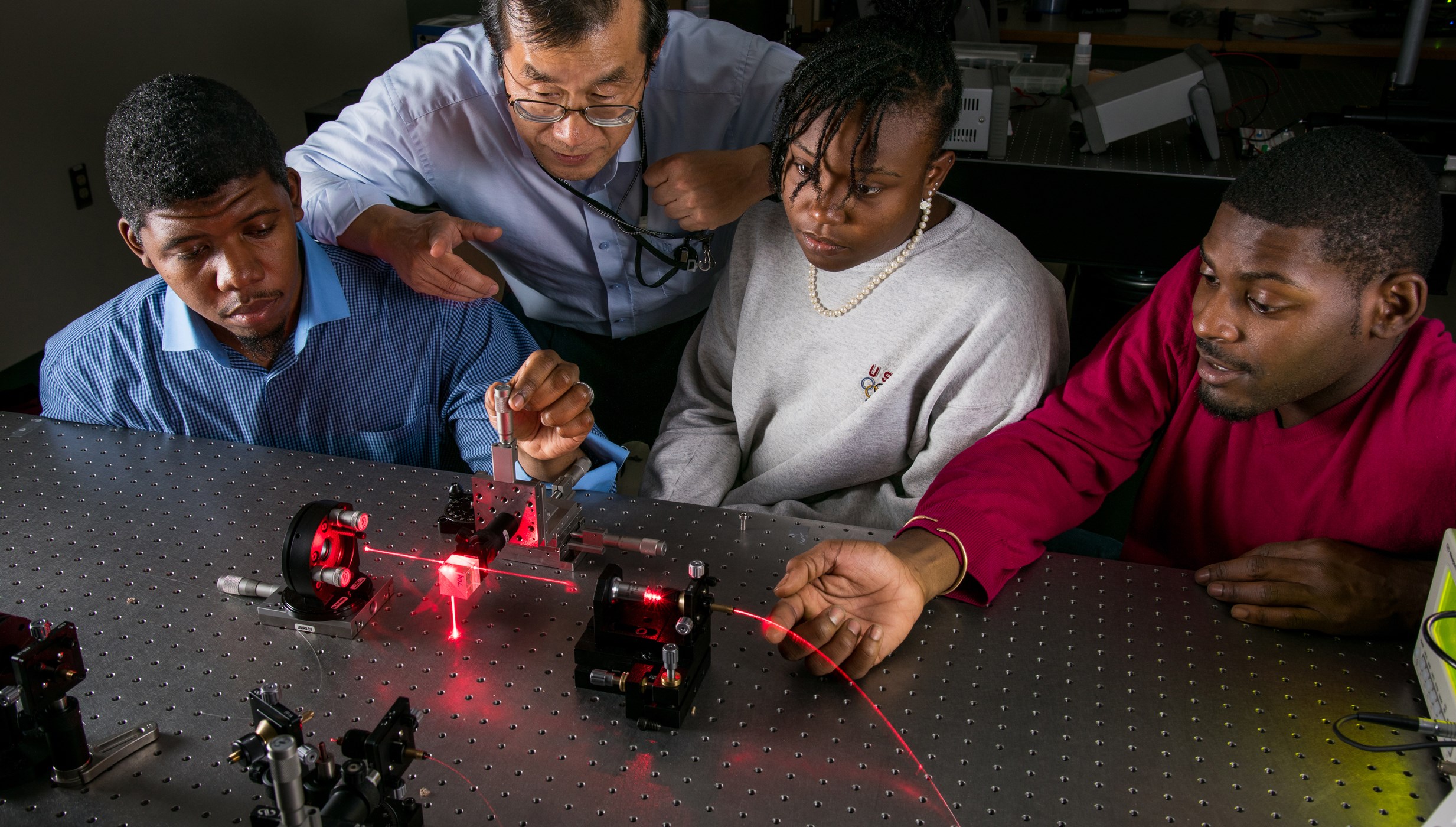We See Your Future in Engineering.
We see your greatest potential and your motivation to achieve.

Department of Engineering Programs
The Department of Engineering offers its students curricula that focus on key concepts and developments in the Electrical, Electronics and Optical engineering fields.
The B.S. and M.S. degree programs provide students with exciting opportunities to conduct research at major research facilities of the university and other research laboratories, both nationally and internationally.
Dr. Patricia F. Mead, Department Head
(757) 451-7722
Programs
- B.S. in Electrical and Electronics Engineering
The curriculum is designed to give the student a thorough knowledge in the methods of design, application, and analysis of electronic systems. Although emphasis is placed on the basic fundamentals of Electronics Engineering, modern topics are covered. The goal is to produce graduates capable of performing well in both industry and in graduate school.
-
The Bachelor of Science in Electrical and Electronics Engineering at Norfolk State University is accredited by the Engineering Accreditation Commission of ABET [http://www.abet.org], under the commission’s Program Criteria for Electrical, Computer, Communications, Telecommunications, and Similarly Named Engineering Programs
Click on the audio button below, to hear a message on the BS. Electrical and Electronics Engineering (BS.EEE) program, from the Engineering Department Chair, Dr. Patricia F. Mead.
Transcript - About the B.S. Electrical and Electronics Engineering program
- B.S. in Optical Engineering
The curriculum is designed to give the student a thorough knowledge in the methods of design, application, and analysis of optical systems. The goal is to produce graduates capable of performing well in both industry and in graduate school.
- The Bachelor of Science in Optical Engineering at Norfolk State University is accredited by the Engineering Accreditation Commission of ABET [http://www.abet.org], under the commission’s Program Criteria for Optical, Photonic, and Similarly Named Engineering Programs.
Click on the audio button below, to hear a message on the BS. Optical Engineering (BS.OEN) program, from the Engineering Department Chair, Dr. Patricia F. Mead.
Transcript - About the B.S. Optical Engineering program
- M.S. in Electronics Engineering
All graduate students studying for the Masters in Electronics Engineering (MS.EEN) are to take 15 credits of core courses. Thesis students need 9 elective credits and 6 credits of thesis courses. Non-thesis students need 12 elective credits and 3 credits project course.
Online Engineering Programs
BROCHURES
Accreditation
Both undergraduate programs (BS.EEE and BS.OEN) have been fully accredited.
 Click here for the ABET accreditation information for our undergraduate degree programs.
Click here for the ABET accreditation information for our undergraduate degree programs.